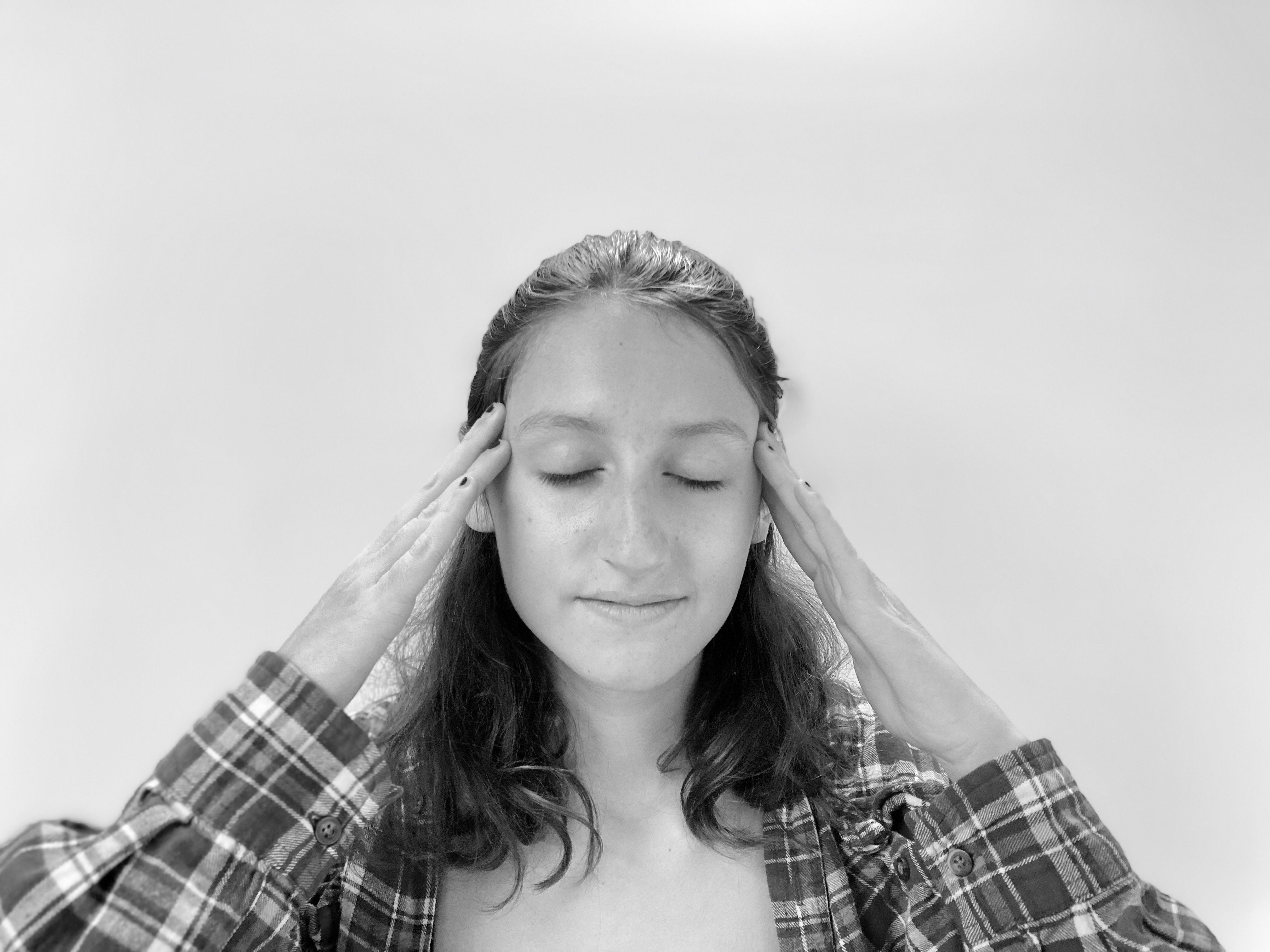We Are America
Not Right
By Grace

Housatonic Valley Waldorf School, Newtown, Connecticut
Not right. I was sitting in my room after a long day of school and something didn’t feel right. I looked around my room and saw the door. It was open. I stood up and shut the door and began to walk away, but it still didn’t feel right. I turned around and repeatedly shut my door until I felt at ease. Why? Why did it not feel right?
I’ve had OCD for as long as I can remember. OCD stands for obsessive compulsive disorder. The dictionary definition explains OCD as a chronic and long-lasting disorder in which a person has uncontrollable, recurring thoughts and one behavior that he or she feels the urge to repeat over and over. But if I were to explain it, I would say: “Imagine wanting to do something but if you do it, something bad will happen to you or others; or you see something sweet and harmless like a baby bunny and your brain tells you to hurt it even though you really don't want to.” That’s the best way I can describe OCD to someone who hasn't experienced it. Although you may have some obsessive thoughts or compulsions (94% of all people do experience it at some time in their life) it does not necessarily mean you have OCD.
It was cold and dark, thoughts were racing through my head telling me about all the terrible things that would happen. I was alone and I wanted to be alone. I wanted no one to touch me or even breathe the same air as me, I completely isolated myself from my family. I was scared and tired and thought that nothing would ever feel OK.
Before Covid hit I never had a problem with germs. One day I was taken out of school because my father had gotten Covid. I immediately shut down. Why, why of all people did this have to happen to me? Not long after, my sister got it too. They were both fine and are completely healed now, but I will never forget the way I felt during that time.
I still have reactions like that one, like when a family member is feeling sick or ill. I make sure to avoid them. Sometimes my reactions to OCD also affect my friends and family. Certain words or triggers may cause me to seek reassurance, and others may cause me to perform certain “rituals” you might say. Occasionally, I will ask my family to partake in these “rituals.”
Some ways that OCD affects my daily life is with small things like having to touch a piece of paper six times, or having to purposely write a word wrong on my homework or else I’ll get the flu or something like that. A lot of times I can’t even talk, breathe, or look at anything, or else “the world will end!”
Although OCD is a big part of my life, it is not a part of who I am and who I choose to be. Lately, I’ve been working on not giving in to my compulsions or responding to my triggers or intrusive thoughts. I have had many therapists before and they have all taught me many different strategies on how to deal with my OCD. One of the strategies I was taught was to give my OCD a name. I named it Percedal. I named it that to make it less scary, and when you think of OCD as something else like another being separate from you, it feels more like a very paranoid friend who’s just trying to warn you and keep you safe.
The first step is to become comfortable with your OCD and the fact that you may not be OK, and that’s all right. To find comfort in discomfort is one of the hardest things you can do. And I will never stop working on these strategies and getting help until everything feels as right as it can, once and for all.
© Grace. All rights reserved. If you are interested in quoting this story, contact the national team and we can put you in touch with the author’s teacher.